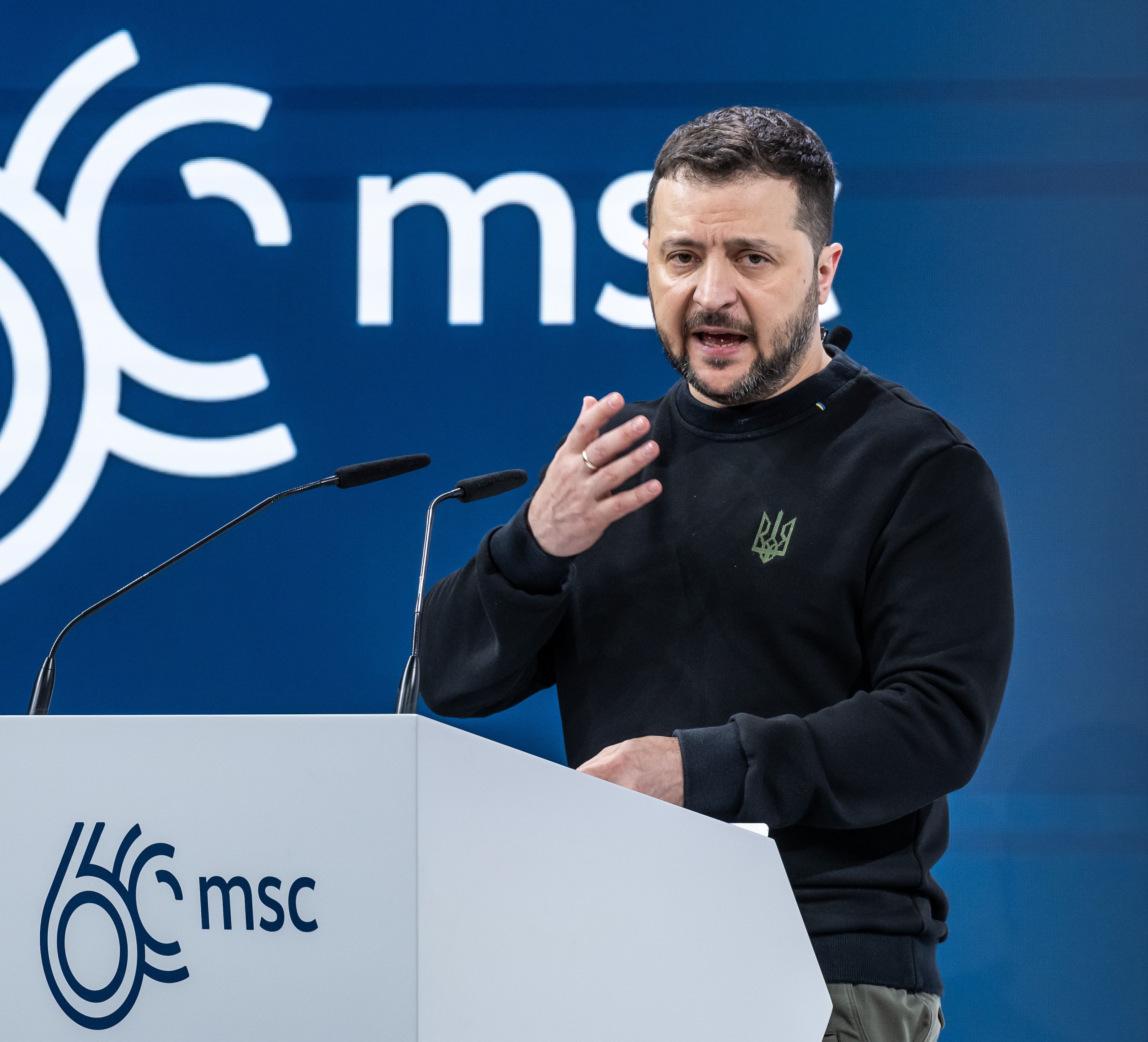Ukraine’s security services said on Tuesday that they foiled a plot to assassinate Ukrainian President Volodymyr Zelenskyy.
Two colonels in the State Guard of Ukraine, which counts the protection of top Ukrainian officials among its duties, were identified as part of a group allegedly working with Russia’s FSB security agency to assassinate President Zelenskyy, Security Service of Ukraine (SBU) head Vasyl Malyuk, and military intelligence chief Kyrylo Budanov.
This marks one of the highest-profile attempts on Zelenskyy’s life since Russia commenced its invasion of Ukraine in February 2022. It is also the first time that high-ranking officials were part of such a plot, according to Kyiv. It is unprecedented that “such a high-ranking official of the state security department has become [the] enemy’s moles,” SBU spokesman Artem Dehtiarenko told Politico.
News of the alleged plot comes on the heels of months of internal turmoil in Kyiv, including frequent firings and arrests of top and senior officials over corruption and espionage charges, as well as Zelenskyy’s decision to fire Commander-in-Chief of Ukraine’s Armed Forces (AFU) and the second most popular public official in the country, Valery Zaluzhny.
These developments, when viewed against the backdrop of Ukraine’s dwindling battlefield prospects, point to a degree of internal Ukrainian vulnerability that should alarm Western policymakers.
The details of this particular assassination attempt are still unclear, and the full extent of Russian involvement has yet to be established. But if — as asserted by Ukraine’s own security agency — Russian operatives were able to enlist the help of at least two high-level Ukrainian officials to organize a sweeping, multi-stage plot to kill three of Ukraine’s senior-most public servants including the President, it suggests a larger phenomenon of extensive Russian intelligence penetration in the Ukrainian bureaucracy and military that will prove difficult to fully diagnose, let alone uproot.
Indeed, this problem will likely grow even more severe as the growing threat of the AFU’s collapse along the front lines creates new incentives for Ukrainian officials at all levels to consider collaborating with Russia. The May assassination plot could thus be an early warning sign of a wider internal dysfunction that, if left unchecked, may eventually snowball into a challenge to Ukraine’s political stability.
These developments are not indicative of a Ukrainian state that is winning or confident in its impending victory, but are instead symptomatic of a harried wartime government riven by internal weaknesses that are being exploited by Russia with increasing effectiveness.
- Did the West deliberately prolong the Ukraine war? ›
- World leaders extend wishes to Trump, condemn violence | Responsible Statecraft ›
















